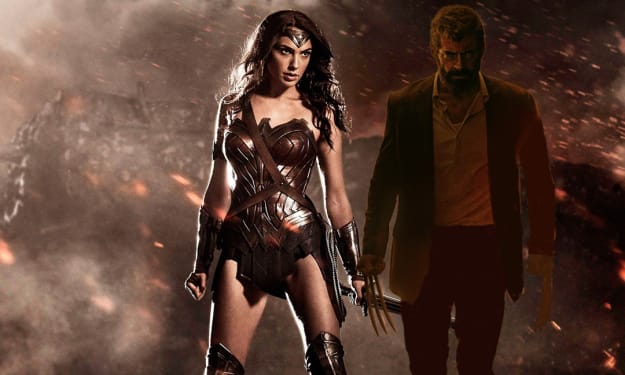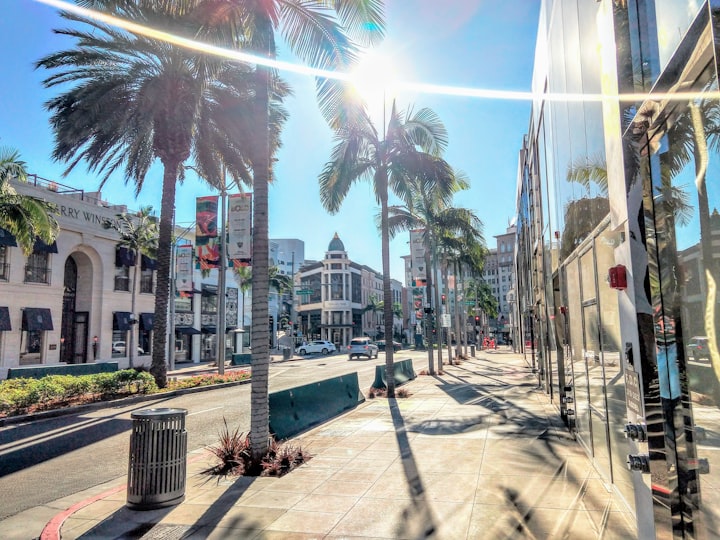
When the Marvel Cinematic Universe launched in 2008, it was like nothing we'd ever seen before. No longer were Marvel producing isolated superhero movies. Now, each film interwove with the others, forming a shared narrative that led us to 2012's The Avengers and beyond.
Here's the problem with creating this kind of shared universe; suddenly, continuity becomes vitally important. That's even more true when you consider how the wider MCU embraces a lot more than just tentpole movies. There are tie-in comics, TV shows, YouTube videos, and Netflix series — All of which are supposed to exist in the same world.
2017 always promised to be a testing year for the MCU's continuity. After all, Spider-Man: Homecoming is set two months after Captain America: Civil War; Guardians of the Galaxy Vol. 2 takes place in 2014 and Thor: Ragnarok presumably tells Thor's story from 2015 to the present day. What we didn't expect, though, was for Spider-Man: Homecoming to essentially reshape the entire MCU.
The Continuity Problems Of Spider-Man: Homecoming
Spider-Man: Homecoming is a phenomenal film, and it's already proving to be a box office hit. Unfortunately, though, Marvel's latest movie also raises subtle continuity problems that only the most alert fans would spot at first glance.
- Last year, Kevin Feige declared that — "unless otherwise indicated" — a Marvel movie was set in the year of its release. As a result, Captain America: Civil War was set in 2016, eight years after Tony Stark revealed himself to the world as Iron Man. Those statements weren't just made in interviews — The film includes dialogue, where the Vision explicitly states eight years have passed since that important event.
- Unfortunately, Homecoming is set two months after Civil War — and, apparently, eight years after the Chitauri invasion in The Avengers.
- Worse still, there's a subtle moment where Spider-Man's AI, Karen, gives him the lowdown on a petty crook called Aaron Davis. We're told that Davis was born in April 1984, and that he's currently aged 33. That would mean Homecoming was set in 2017.
Agonizingly for fans of the wider MCU, these dates directly contradict everything established in other media. For example, Agents of S.H.I.E.L.D. Season 3 includes dialogue setting the Chitauri invasion in 2012 — five years before Homecoming.
Why Has This Happened?
Some fans are suggesting that this is a deliberate move on Marvel's part. After all, we've been told that the House of Ideas is taking inspiration for Spider-Man's trilogy from the Harry Potter franchise, which means that each film will be set in a different school year. With 2019's Homecoming sequel set to start "minutes" after Avengers 4, bumping Homecoming up to 2017 really might help a lot; this would presumably mean both Infinity War and Avengers 4 were set in 2018.
It's possible that there's truth to this. At the same time, though, that "eight years later" problem still seems far too awkward. The only way to reconcile Homecoming and Civil War is to move Civil War into 2017, and adjust all of the Phase 1 films into an 18-month period. Even then, this only works if you assume that terms like "eight years later" were being used approximately, and could mean anything up to "eight years and five months later."
No, I'm afraid I can see no way to explain this away. Marvel has made a pretty major continuity error, and it's all the more surprising given that director Jon Watts openly talked about checking out a detailed timeline scroll. As he noted:
"There’s an actual scroll that they unrolled for me. One of my producers, Eric Carroll, it was his first job at Marvel to work on a timeline and see where things line up and see where things didn’t quite line up. Like, ‘Oh, that’s when Captain America is born.’"
For the record, Carroll joined up for 2011's Thor, meaning this timeline has been worked on for at least six or seven years. Something has clearly gone badly wrong in terms of continuity then.
Does Continuity Matter Anyway?
Despite how the MCU sells itself as a shared universe, this kind of continuity problem is unlikely to bother casual moviegoers. After all, the references are to events in films that were set years ago, and we tend to assume that most movies are set in the present day.
Marvel is more likely to be concerned by smaller continuity errors, subtle ones that actually damage the flow of Spider-Man: Homecoming from Captain America: Civil War. The most prominent example is Peter's black eye, a major plot point in the end-credits sequence in Civil War, and yet mysteriously absent in Homecoming. That's the kind of continuity error that more casual film-fans can start picking up on, and it risks undermining the sense that we're watching a consistent, ongoing narrative.
It's worth noting that poor continuity isn't a franchise-killer. Fox has proved that with their X-Men films. We're essentially at the point now where Fox doesn't really bother too much with continuity, as was proven when Logan contained references to both timelines! Still, the fact remains that — among both fans and moviegoers — Fox's continuity is viewed as something of a joke. When Deadpool made a crack about the timelines, even casual viewers got it.
How Can We Fix This?
Even accepting that Marvel's made a mistake, we have to deal with the canon as it is now. There's only one real way to save the wider MCU continuity, and that's to embrace a model that has been used by Star Wars before. The Star Wars universe grew dramatically in the years between the Original Trilogy and the Prequels. As a result, when George Lucas decided to return to the Galaxy Far, Far Away in the late '90s, he faced a difficult question; how to deal with a galaxy that had expanded beyond him? His solution was a creative one, essentially establishing 'tiers' of canon;
- The 'God-Level' canon were things established in the movies. These are supreme.
- The Expanded Universe took on a secondary level; it was canon only to the extent it didn't contradict the movies. If even the slightest detail contradicted, then the EU was wrong, and had to be dismissed or explained away.
- Finally, if the movies rendered an entire event non-canon (say, the origin of Boba Fett), then that piece of EU was branded 'Infinities' and no longer considered part of the canon at all.
Ironically enough, the MCU was already heading in this direction before Spider-Man: Homecoming. When James Gunn's Guardians of the Galaxy Vol. 2 contradicted a tie-in comic for the first film, he waved it away by declaring that the comic wasn't considered part of the canon anymore.
This approach is the only way that we can adjust the timeline post-Homecoming while still acknowledging the wider MCU. It means, for example, that we can dismiss Agents of S.H.I.E.L.D. Season 3's reference to the Chitauri invasion of 2012 without losing the series from continuity altogether.
So, following the tiered approach, here's what the timeline now looks like:

Let's explain how this works:
- You'll note that I've followed the assumption that dates aren't specific. This helps with adding the necessary space between Iron Man and The Avengers, where we can assume rounding up and rounding down at various points. It also provides some wriggle-room between Thor and Thor: The Dark World, where Darcy refers to Thor disappearing for "like two years."
- I'm going to assume that Iron Man has to remain in 2008. That was the whole reason Kevin Feige established a timeline, saying that "unless otherwise indicated" a film takes place in the year of its release. Next year's Infinity War will celebrate the tenth anniversary of the MCU, and it's highly likely that this will be a major plot point. We can make this work by using the principle that dates aren't specific. In Civil War, Vision says that Tony Stark unmasked "eight years ago." However, if we carefully date Civil War in early 2017, and Iron Man in late 2008, we can argue he meant something like "eight years and nine months ago."
- The Agent Carter one-shot is most likely non-canon after the TV series, and James Gunn has rendered the Guardians of the Galaxy Prelude comic non-canon as well. I've left them on the timeline, but shaded them.
- With Homecoming set in 2017, that means Civil War has to jump forward a year. This directly contradicts the WHiH promotional YouTube videos, but they're a lower tier of canon, and we can simply assume they're incorrect.
- Agents of S.H.I.E.L.D. Seasons 1 and 3 have to be extended over a period of years. Season 1 contains a tie-in episode for Thor: The Dark World, but the second half of the season overlaps with The Winter Soldier. Season 3, meanwhile, kicks off in 2015 — the episodes are far too specific, particularly around Simmons's survival on Maveth. However, it also runs up to just after the passing of the Sokovia Accords. Thankfully, both seasons present us with some wriggle-room, where there are unspecified gaps between the episodes. It's awkward, but — with Agents of S.H.I.E.L.D. a second tier of canon — it's necessary in order to fit the series around the movies.
- Agents of S.H.I.E.L.D. Season 4 starts six months after Season 3, but doesn't seem to take up much time. The third pod, for example, only takes place over the course of a week.
So far as I can see, this is now the only way to fix the continuity.
The Problems and Potentials Of This Approach
The problem with this approach is that, as the universe continues to grow, so the contradictions increase. We're already discounting explicit references in TV shows, YouTube videos, and tie-in comics. Marvel Television in particular is expanding their range at a rate of knots, with upcoming shows including New Warriors, Runaways, and Cloak and Dagger. Odds are, we're soon to see a lot more wrinkles in the timeline!
That said, this adjusted timeline may ironically help some of the Marvel TV shows in the long run. The Netflix series have, so far, been set in late 2015 and early 2016. Under the old timeline, they were creeping perilously close to the passing of the Sokovia Accords, which would surely have had a major impact on the shows. Now though, Marvel Television has a lot more room to manoeuvre.
As you can see, #SpiderManHomecoming really does cause a lot of major continuity problems for the MCU. It's too soon to consider this the 'official' approach; #Marvel visionary #KevinFeige has yet to comment on it, after all, and it's entirely possible that he'll just dismiss Homecoming's continuity as a mistake. In the meantime, it's down to the fans to try to work this out!
Special thanks to Jason Johns of the MCU Facebook group.
About the Creator
Tom Bacon
A prolific writer and film fan, Tom has a deep love of the superhero genre.






Comments
There are no comments for this story
Be the first to respond and start the conversation.